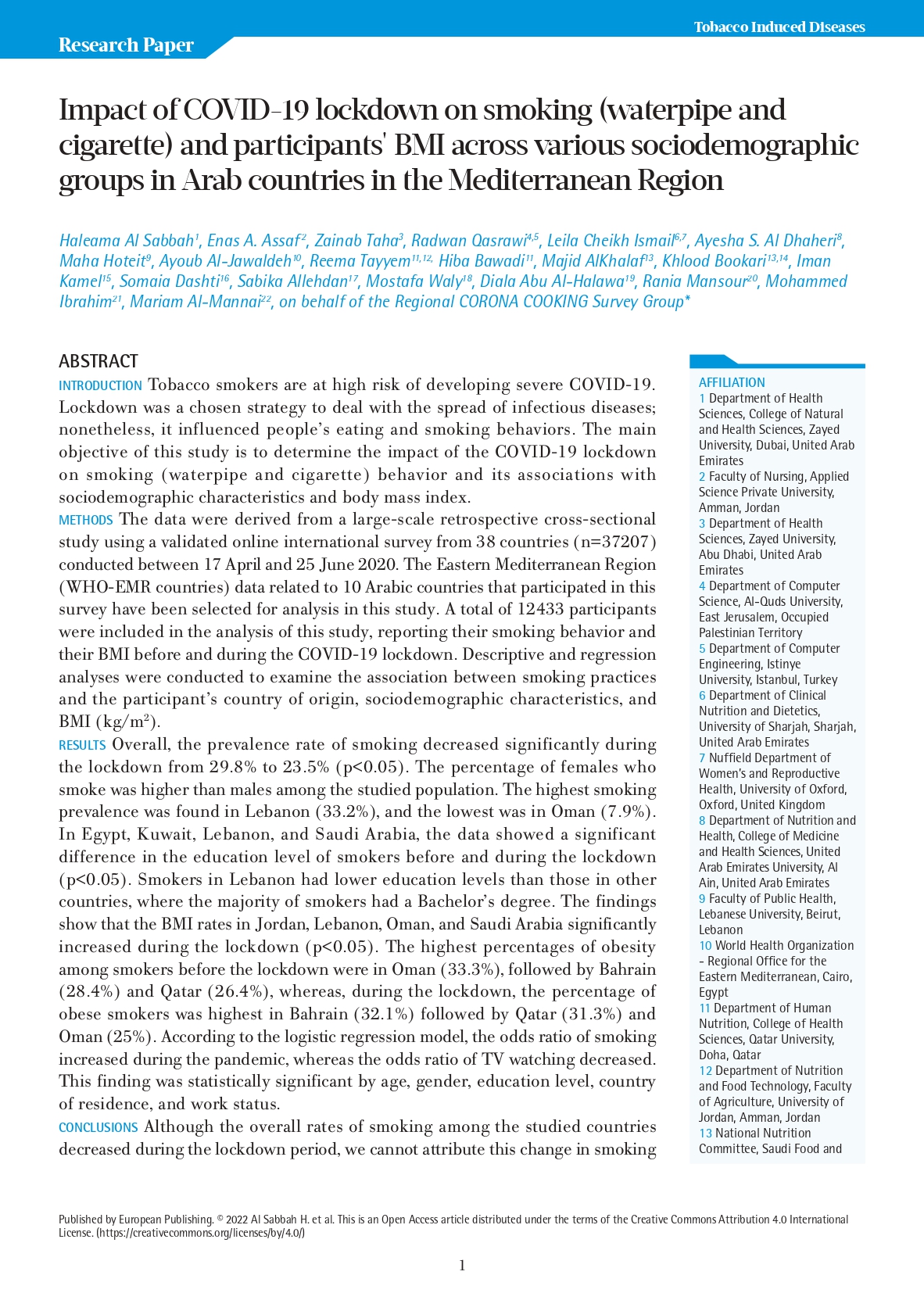
Impact of covid-19 lockdown on smoking (waterpipe and cigarette) and participants' BMI across various sociodemographic groups in Arab countries in the Mediterranean Region
Publication date: 2022
This study examines how the COVID-19 lockdown affected smoking habits and BMI in Arab countries of the Mediterranean region. While overall smoking rates decreased during the lockdown, the change couldn't be directly linked to the lockdown itself. The findings suggest that smoking cessation programs should be prepared for disruptions like pandemics, and public health initiatives should promote healthy lifestyles to address the long-term effects of lockdowns on health.
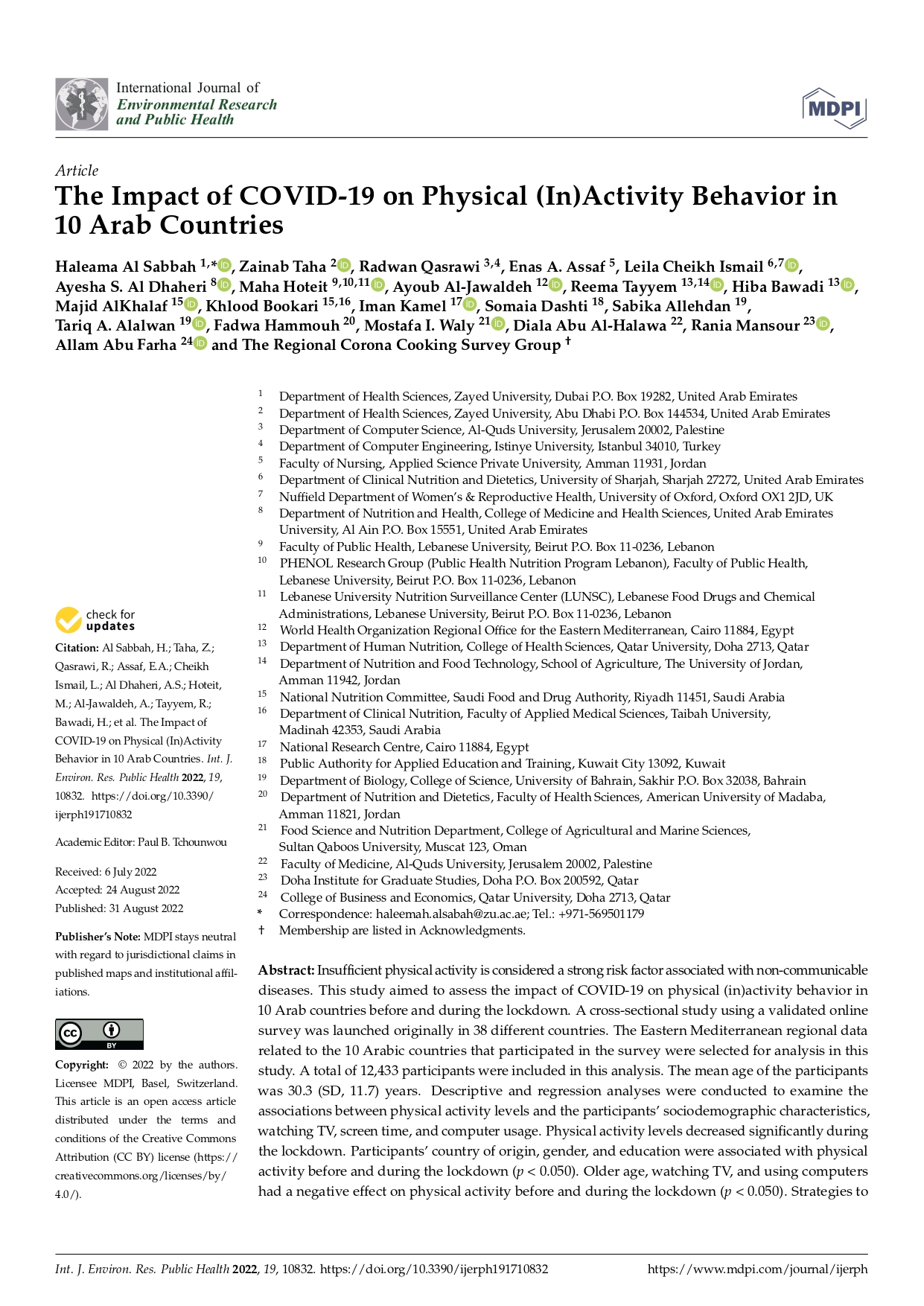
The impact of covid-19 on physical (in)activity behavior in 10 Arab countries
Publication date: 2022
Insufficient physical activity (PA) is considered a strong risk factor associated with non-communicable diseases. This study aimed to assess the impact of COVID-19 on physical (in)activity behavior in 10 Arab countries before and during the lockdown. In conclusion, this study showed a negative effect of lockdown on PA levels. The results of the study suggest that understanding how PA behaviors changed during the lockdown of COVID-19 is important to assist the health authorities in the 10 Arab countries in restructuring and designing new health promotion interventions in Arab countries.
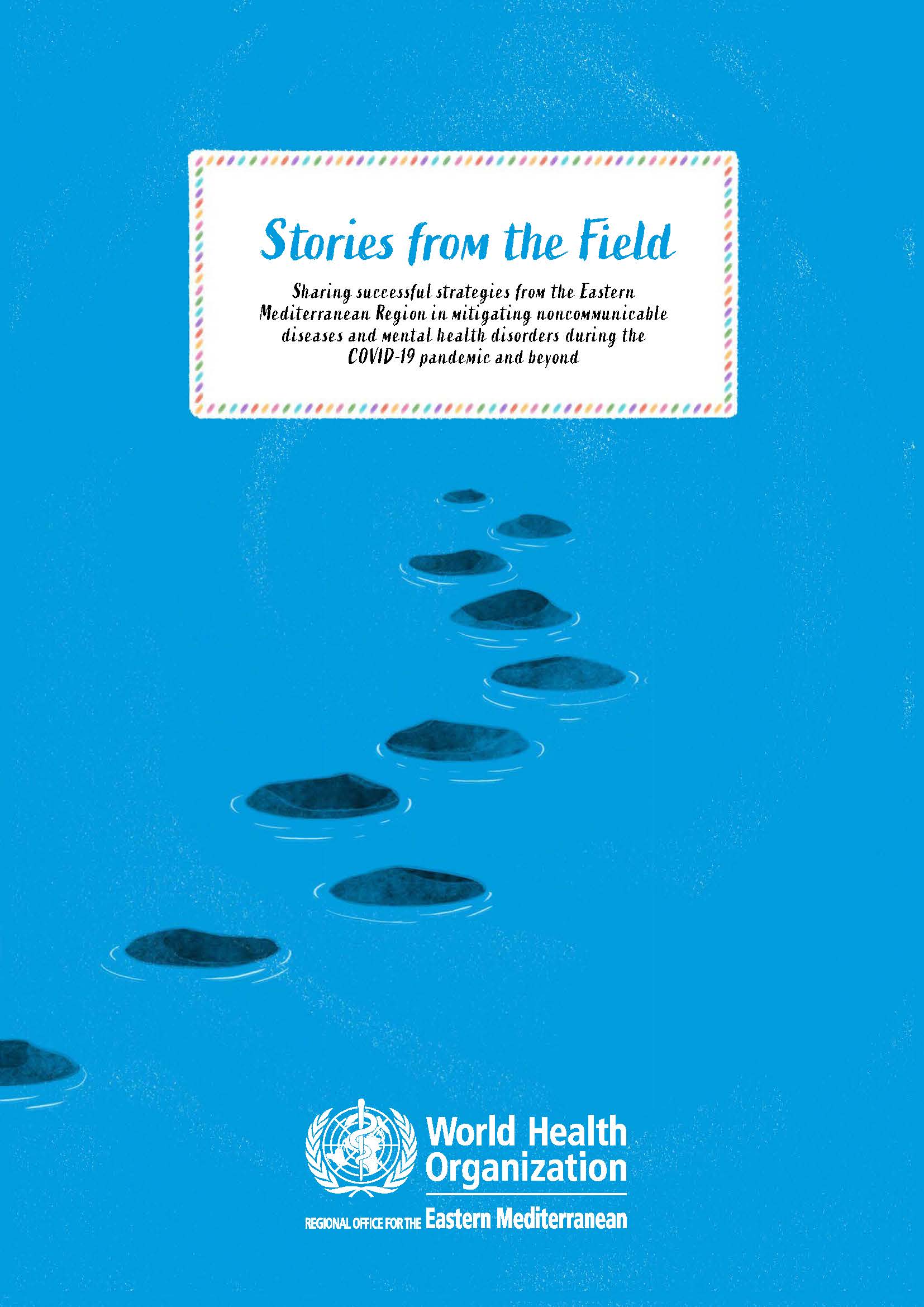
Stories from the field: sharing successful strategies from the Eastern Mediterranean Region in mitigating noncommunicable diseases and mental health disorders during the COVID-19 pandemic and beyond
Publication date: 2023
This publication concentrates on unpublished accounts of what Eastern Mediterranean Region countries have done to address noncommunicable diseases and mental health issues, both before and during the COVID-19 pandemic. The aim is not to give a complete picture of each country’s overall strategy, but to share knowledge and experience with other countries around the world as we confront the global challenges of mental health and NCDs.
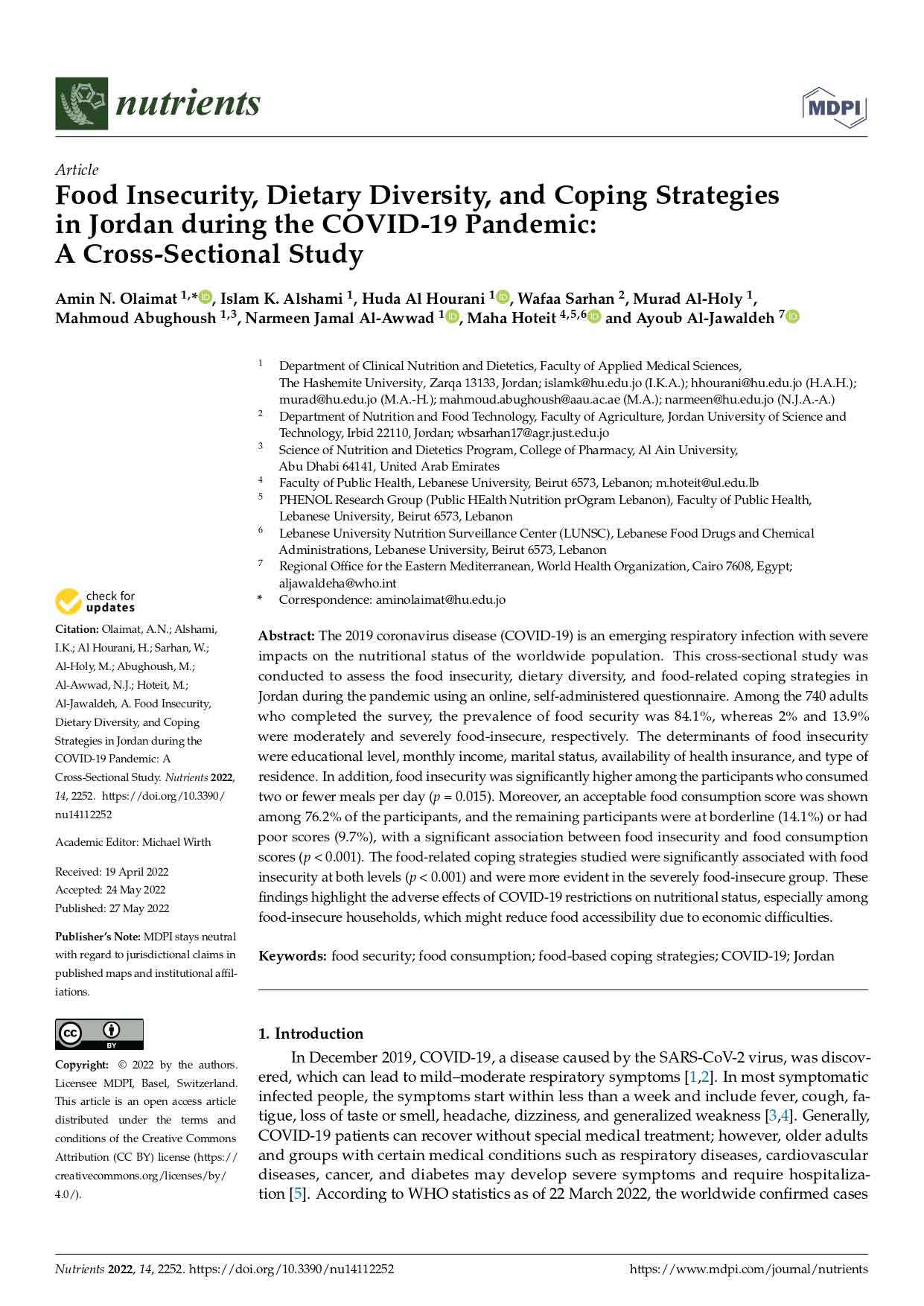
Food insecurity, dietary diversity, and coping strategies in Jordan during the covid-19 pandemic: A cross-sectional study
Publication date: 2022
The coronavirus disease (COVID-19) pandemic had a profound impact on food security and dietary habits worldwide. This cross-sectional study aims to assess the prevalence of food insecurity, dietary diversity, and food-related coping strategies in Jordan during the pandemic using an online, self-administered questionnaire. The findings highlight the adverse effects of COVID-19 restrictions on nutritional status, especially among food-insecure households, which might reduce food accessibility due to economic difficulties.
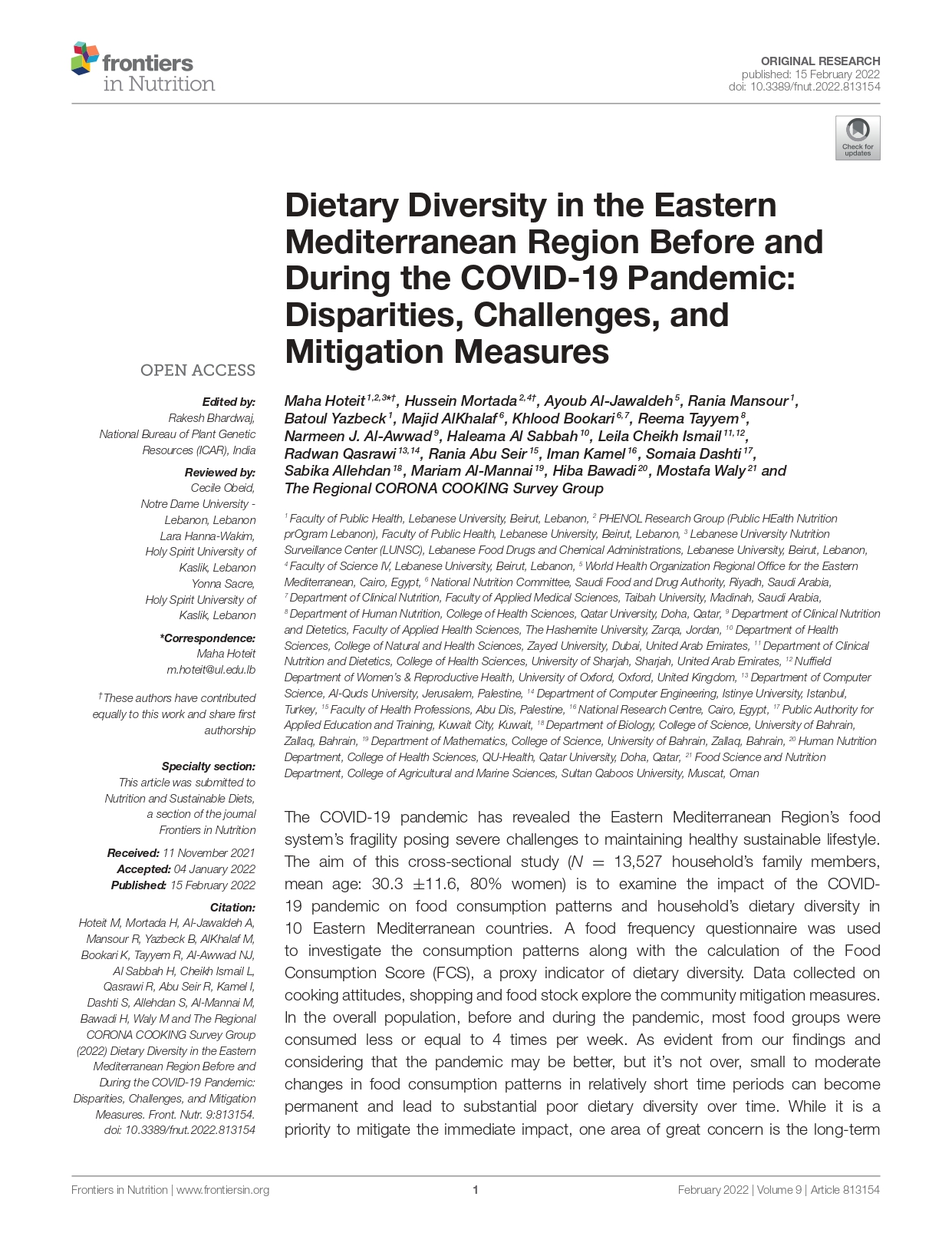
Dietary diversity in the Eastern Mediterranean Region before and during the covid-19 pandemic: disparities, challenges, and mitigation measures
Publication date: 2022
The COVID-19 pandemic has revealed the fragility of food systems in the Eastern Mediterranean Region (EMR) posing severe challenges to maintaining a healthy sustainable lifestyle. This cross-sectional study aims to examine the impact of the COVID-19 pandemic on food consumption patterns and household dietary diversity in 10 EMR countries. To conclude, the COVID-19 crisis revealed the Region's unpreparedness to deal with a pandemic. While the aggressive containment strategy was essential for most countries to help prevent the spread, it came at a high nutritional cost, driving poor dietary diversity.
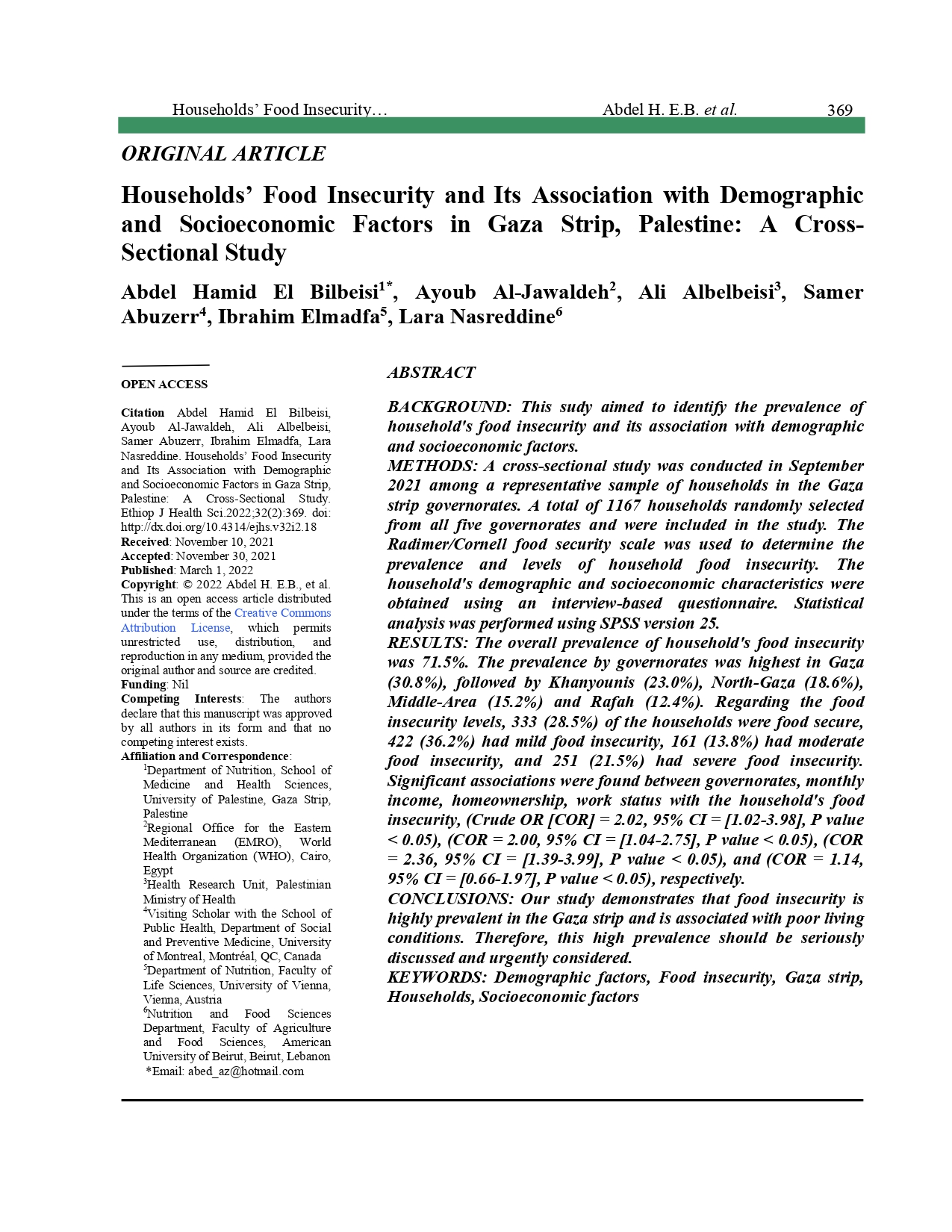
Households’ food insecurity and its association with demographic and socioeconomic factors in Gaza strip, Palestine: a cross sectional study
Publication date: 2022
This study aimed to identify the prevalence of food insecurity in households and its association with demographic and socioeconomic factors. The study concludes that food insecurity is highly prevalent in the Gaza strip and is associated with poor living conditions. Therefore, this high prevalence should be seriously discussed and urgently considered.
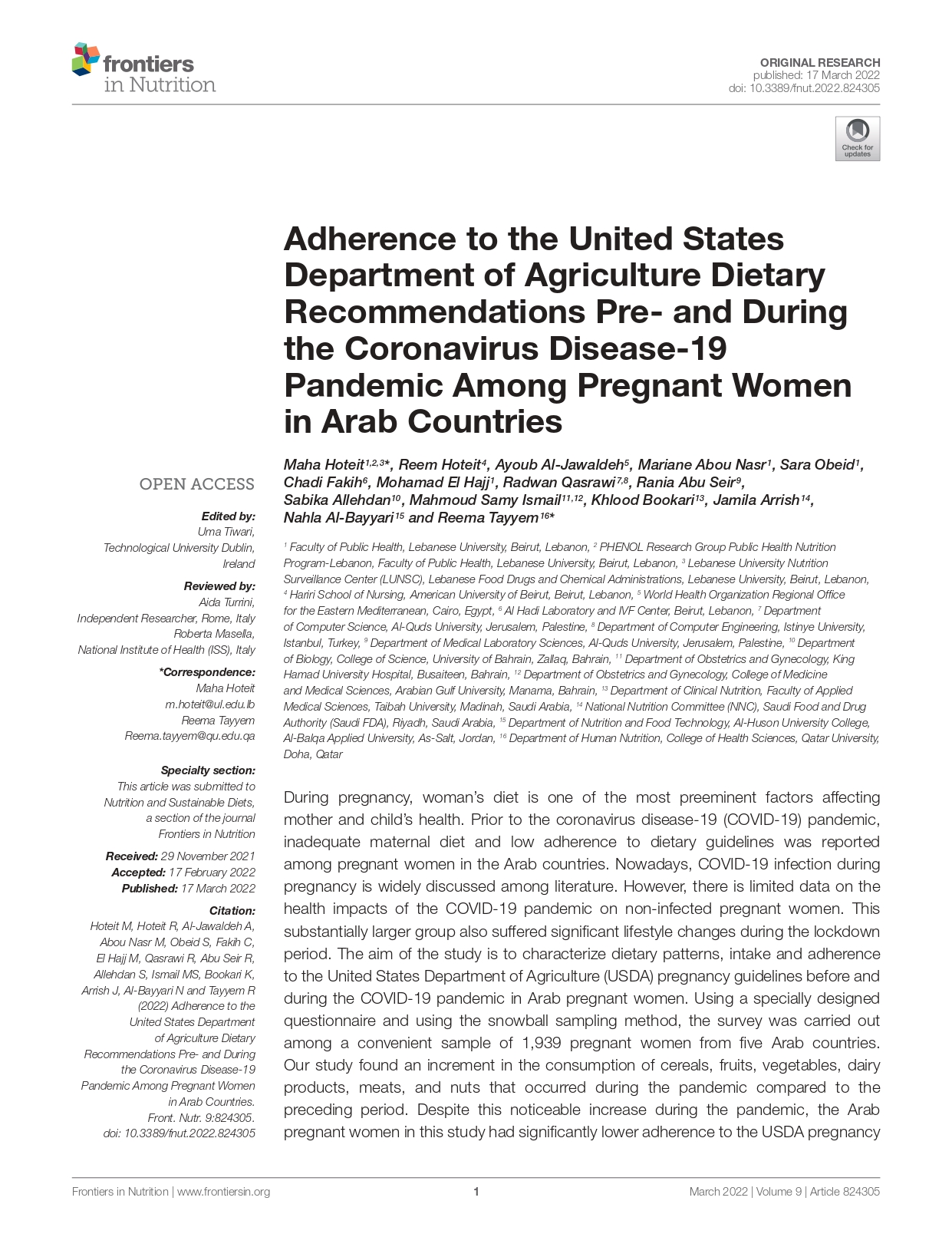
Adherence to the United States Department of Agriculture dietary recommendations pre-and during the coronavirus disease-19 pandemic among pregnant women in Arab countries
Publication date: 2022
Prior to the COVID-19 pandemic, inadequate maternal diet and low adherence to dietary guidelines were reported among pregnant women in the Arab countries. The study aims to characterize dietary patterns, intake and adherence to the United States Department of Agriculture pregnancy guidelines before and during the COVID-19 pandemic in pregnant women. This study showed that before and during the COVID-19 pandemic, poor adherence to dietary recommendations occurred in a considerable number of Arab pregnant women. The findings emphasize the need for nutritional education and intervention during prenatal visits.
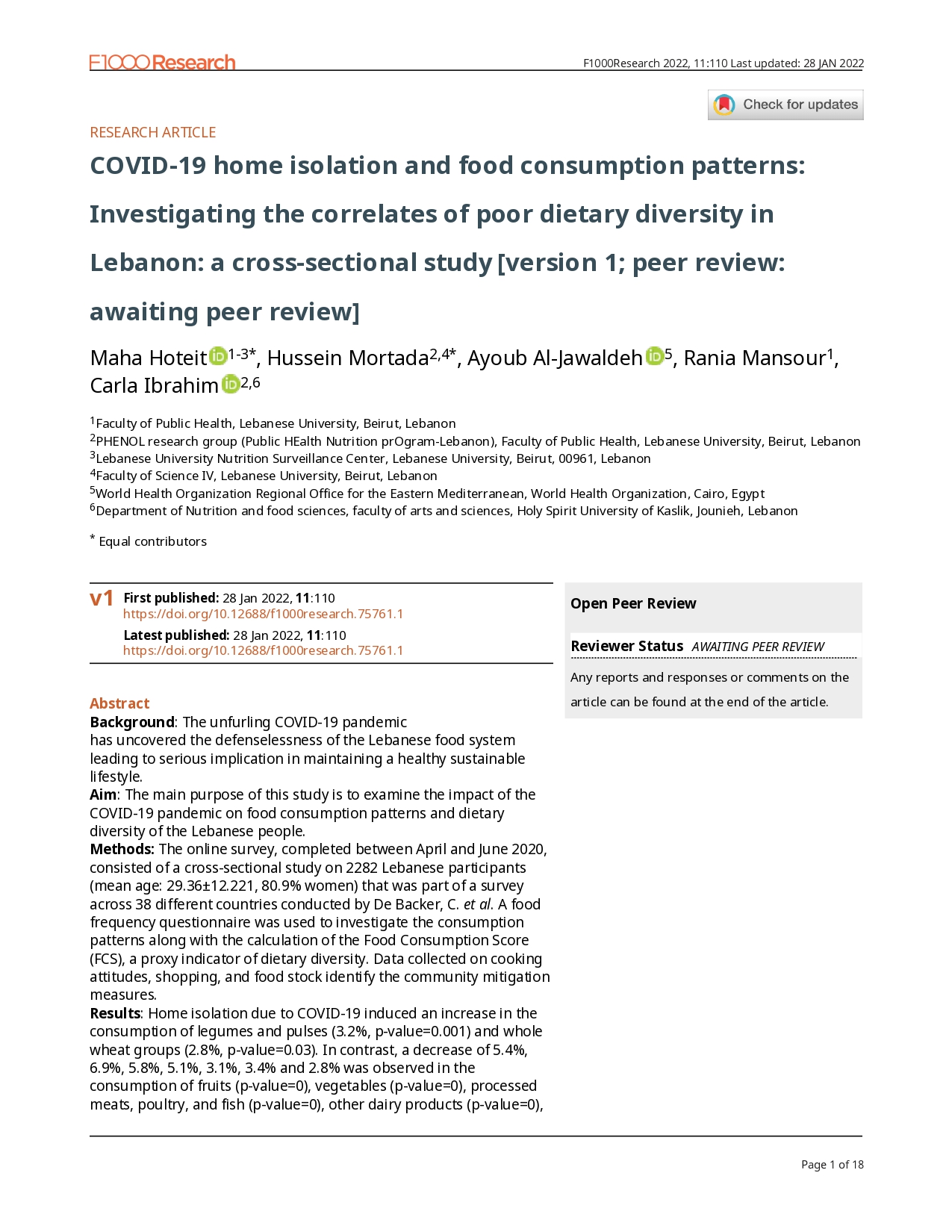
COVID-19 home isolation and food consumption patterns: Investigating the correlates of poor dietary diversity in Lebanon: a cross-sectional study
Publication date: 2022
The unfurling COVID-19 pandemic has uncovered the defenselessness of the Lebanese food system leading to a serious implication in maintaining a healthy sustainable lifestyle. The main purpose of this study is to examine the impact of the COVID-19 pandemic on food consumption patterns and dietary diversity of the Lebanese people. To conclude, the hostile home isolation strategy followed to prevent the COVID-19 spread in Lebanon, came at a high nutritional cost, driving poor dietary diversity.
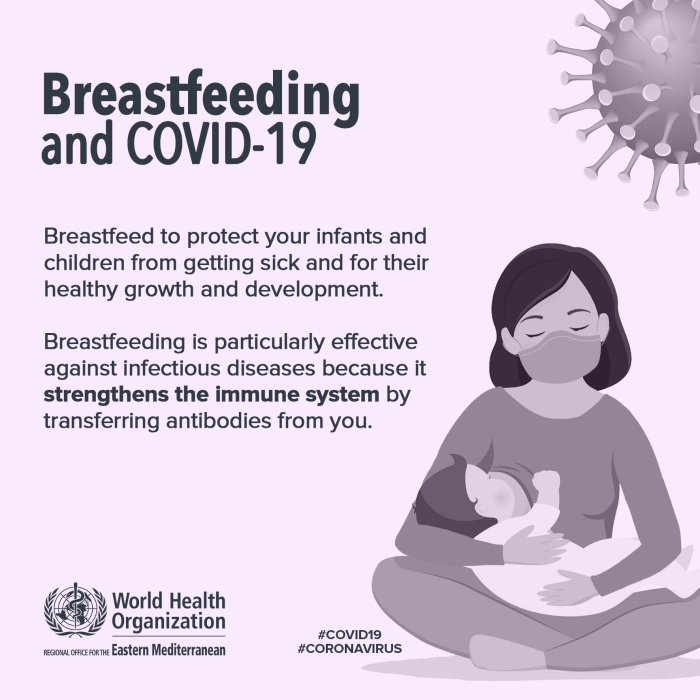 WHO publications repository on nutrition
WHO publications repository on nutrition



